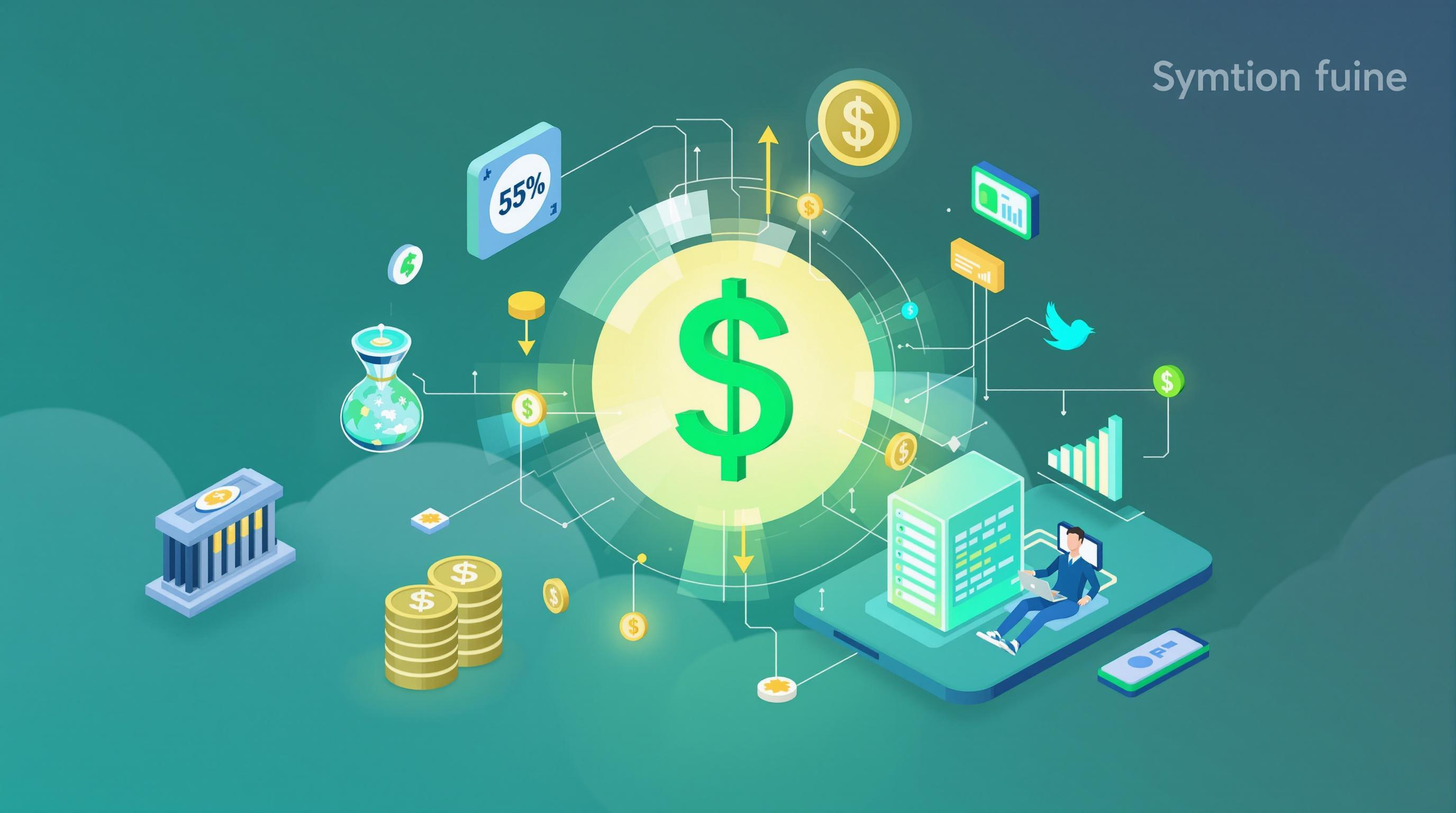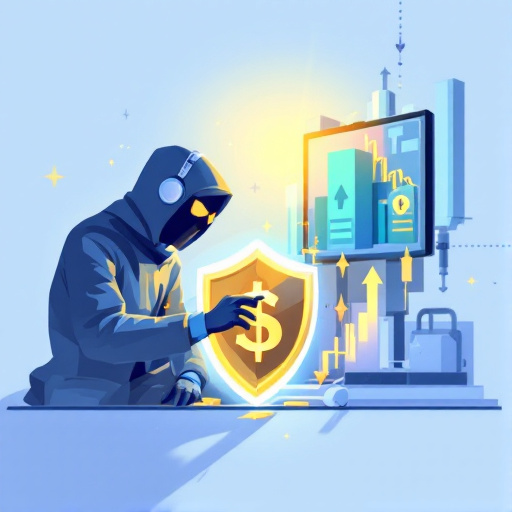Featured Articles
- 5 Emerging Technologies Revolutionizing Personal Finance Management in 2024
- 7 Best Robo-Advisors Released Since 2019 Revolutionizing Personalized Investment Strategies
- "Crypto Cats: How Feline Influencers Are Shaping the Future of Crypto Investments"
- Cryptocurrency and Climate Change: Can Digital Currencies Help Save the Planet?
- Cryptocurrency as Art: Exploring the Financial Value of Digital Creations in the NFT Market
The Rise of Ethical Hacking in Finance: Safeguarding Investments from Digital Thieves
The Rise of Ethical Hacking in Finance: Safeguarding Investments from Digital Thieves
The financial industry is evolving, not just in terms of technological advancements but also in the fight against cybercrime. As digital theft becomes more sophisticated, falling prey to cybercriminals could mean not only loss of personal wealth but also the destabilization of entire financial systems, leading to an urgent rise in ethical hacking.
A New Era of Cybersecurity: The Rise of Ethical Hacking
These days, the chatter around ethical hacking is as common in boardrooms as it is in tech meetups. Financial institutions, once the gatekeepers of wealth, are now racing against the clock to protect their assets from digital thieves armed with a new arsenal of tools that make stealing as easy as pie.
The Numbers Don't Lie
The statistics are staggering. According to a report by Cybersecurity Ventures, global cybercrime costs are projected to hit $10.5 trillion annually by 2025, up from $3 trillion in 2015. Now, more than ever, the financial sector stands at the frontline of this digital battlefield.
Why the Financial Sector is a Prime Target
But what makes the finance world so attractive to hackers? Simple: Money. It’s like a moth to a flame. The finance industry holds vast sums of capital and personal data, making it a ripe target. Last year, a whopping 60% of small businesses in the financial sector reported being victims of a cyberattack, according to a report by the National Cyber Security Alliance.
To further jeopardize matters, financial institutions are not just conventional banks anymore. They now include fintech companies, digital wallets, and cryptocurrency exchanges. With an explosion in the number of digital transactions, the attack surface has expanded significantly, leading to increased vulnerabilities.
Case Study: The Target Breach
Let’s talk about the infamous 2013 Target breach, which exposed the personal information of over 40 million credit and debit card customers. Although Target is a retail giant, the implications reverberated through the financial sector, resulting in billions in losses. The hack was facilitated through a third-party vendor—an essential lesson learned about supply chain cybersecurity. It became abundantly clear that safeguarding sensitive information was not simply a standalone endeavor but an industry-wide necessity.
What is Ethical Hacking, Anyway?
But enough doom and gloom—let’s pivot to a brighter side: ethical hacking. So what exactly does this term encompass? Ethical hackers, or white-hat hackers, proactively test systems for vulnerabilities, essentially donning the black hat but with permission and purpose. They go where others fear to tread, simulating attacks to understand and fortify defenses. Think of them as the good guys ensuring the bad guys don’t take the crown jewels.
How is the Finance Industry Adapting?
So what are financial institutions doing to counter these threats? Enter ethical hacking teams. Companies like JPMorgan Chase employ ethical hackers to identify vulnerabilities before bad actors can exploit them. They conduct simulated attacks—akin to digital fire drills—preparing for when the real deal might occur.
Consider the case of Bank of America: in 2020, the institution launched an internal program called “Red Team” that consists of specialized ethical hackers who continuously scout for weaknesses. Their mission? To identify loopholes and secure systems proactively. This way, they create a fortified digital environment that minimizes the risk of falling victim to cybercriminals.
Training the Next Generation
Let’s not forget about the significance of educating the next generation of ethical hackers. Knowledge is power, and investing in training is crucial. Institutions across the globe are now offering degrees and certifications in ethical hacking paired with cybersecurity. According to the U.S. Bureau of Labor Statistics, the job outlook for information security analysts is projected to grow 33% from 2020 to 2030, much faster than the average for all occupations.
Real-life Training Ground: Capture the Flag (CTF)
As an adventurous college student myself, few things are as thrilling as participating in Capture the Flag (CTF) competitions. These contests simulate real-world hacking scenarios and are a breeding ground for ethical hackers. Many financial institutions sponsor CTFs, where young minds tackle problems that mirror industry challenges, blending education with excitement. When I participated in my first CTF, there was nothing cooler than shouting “I got the flag!”
Collaborate, Don’t Isolate
In the fight against cybercrime, collaboration is key. Ethical hackers are often the unsung heroes of the financial landscape—working around the clock to protect assets while engaging with various stakeholders, including policymakers, to create robust security regulations. A great example of this is the partnership between the Financial services Information Sharing and Analysis Center (FS-ISAC) and the ethical hacking community, which promotes information sharing to better defend against malicious actors.
The Cost of Inaction
Let’s be real: doing nothing has a cost. Beyond just the expanding threat landscape, negligence can incur hefty financial penalties. For instance, in 2019, Equifax settled a breach case for $700 million. Institutions that don't invest in ethical hacking may potentially risk not just their assets but their reputations as well, leading to lost customers and investor trust.
Humor as an Approach
Sometimes the best defense is a good laugh. In the world of cybersecurity, some organizations have begun using humor to draw attention to the importance of security protocols. Picture this: a bank releasing a cheeky ad that says, “Don’t let your credit card fall into the wrong hands; it doesn’t know how to swim!” Such campaigns remind clients to stay vigilant while lightening the mood.
The Future of Ethical Hacking in Finance
The future is bright for ethical hackers. As artificial intelligence and machine learning become standard tools in cybersecurity, ethical hackers are getting smarter, too. They are learning to utilize the very technologies that hackers exploit. According to a study by the World Economic Forum, AI and machine learning technologies can help detect fraud at 95% accuracy. This transformational leap could reshape financial security, turning the tables on cybercriminals.
Changes on the Horizon
Another exciting prospect is the rise of decentralized finance (DeFi). With this shift, the demand for ethical hackers will only skyrocket. As decentralized platforms proliferate, it becomes increasingly crucial to establish security protocols that protect users from vulnerabilities unique to these systems. One vulnerability can undermine an entire network—talk about high stakes!
In conclusion, the rise of ethical hacking in finance is more than just a trend; it's a necessity. As hacking techniques evolve, the methods of retaliation must keep pace. It's a cat-and-mouse game where ethical hackers are proving to be the key players in safeguarding investments against digital thieves. To paraphrase a popular proverb—desperate times call for ethical hackers.
Join the Cause
If you’re a budding hacker or someone interested in enhancing cybersecurity within finance, consider venturing into ethical hacking. There are numerous resources and communities available—dive in! Who knows, with commitment and creativity, you could become the next cyber hero.




